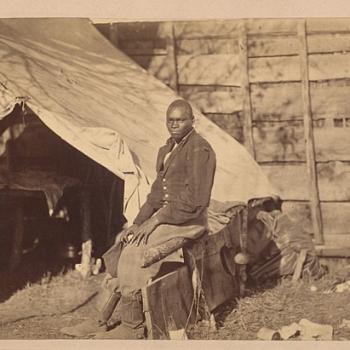It was funny once.
If you are my age and had a bad case of Anglophilia combined with warped humor, then late night PBS introduced you to the lads: the comedy team called Monty Python’s Flying Circus.
Televised comedy when I was a kid was not funny. I was too late for the best of black and white television: Andy Griffith or Dick Van Dyke. I challenge anyone a year after an episode to find Laugh In funny. Archie Bunker and Maude were witless leftist sermons with laugh tracks. LOL was not an acronym yet, but it did not matter: we did not.
When Jimmy Carter said America was in a malaise, he could have been referring to televised comedy.
But Britain had already created the cure and an amusing British invasion came to PBS. After cutting edge PBS showings of Life of the Cumquat and World War II: We Refight It Again, Because the War is the Thing that Unites the USA, we discovered (slowly without the Net, dear reader) Monty Python. The Oxbridge humor was naughty, but clever. The show assumed we had read a book, gotten a good education, and then mocked the books and the education.
When I saw “moose choreography” in the “credits” of Monty Python, it was a revelation and for the first time in an age I laughed out loud.
Python made jokes that television had not made and movies outside of Mel Brooks. Television had “rules” and Python broke them.
The best sketches, The Dead Parrot or The Philosopher’s Football Match, are still funny, but mostly the show has not aged well. Why? The Pythons so influenced creative types that producers like Joss Whedon and writers on his shows like Buffy repeated their transgressions against television until they became the new rules. The post-Python generation isn’t shocked into laughter by the show, because the rules of television evolved in the direction the Pythons set.
The show was so triumphant it became a new normal.
Television changed by diversifying over the 1990’s and early twenty-first century. Viewers can form their own networks: if you wish you can watch Python every night and the sketches on command. Python often cannot stand the scrutiny: it was too hastily constructed. Sadly, the best of the show has been strip-mined by Youtube so a watcher no longer build up to the sketches, even the DVD let’s you skip directly to them.
The show made a living slaughtering sacred cows, but all the blessed bovines are dead. We expect the Spanish Inquisition and making fun of patriotism, priests, and professors is old hat. There are either no network censors left or the censors have adopted the genial left-of-center secular hedonism of the show. To be transgressive now, a Python show would have to slaughter those bovines. Nobody has done that well yet: BSA on the Blaze tries but fails. It is transgressive, but not funny or clever.
It asks this question: can conservatives do Pythonesque humor?
So credit the Pythons with creating an entire entertainment niche of the non-network universe. They broke the screen between us and the sketch. The Pythons did something completely different every few minutes: vaudeville on video. They offended pieties when there were pieties to offend. They were sexy without pornography, Shakespearean. The Pythons assumed literacy, they did not dumb down the comedy and the show did genre blending (animation, song and dance, sketch comedy) perfectly.
There was a time when saying “neet” and getting a laugh meant I had found a friend. Ubiquitous You-Tube has made that a shibboleth no longer, but mostly. Why did the show matter? Because, for good and bad, we live in the Flying Circus. .. everything is completely different now.












